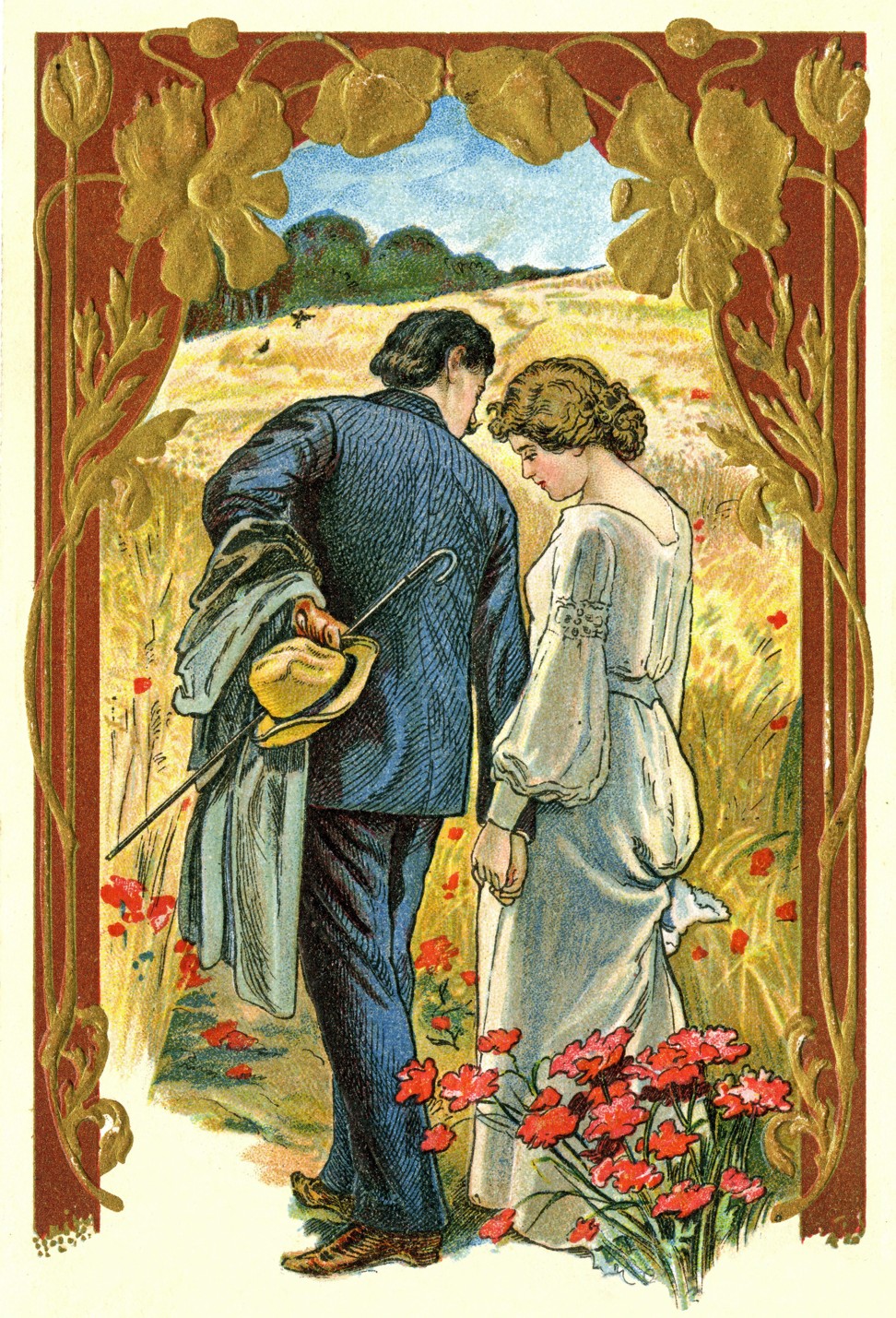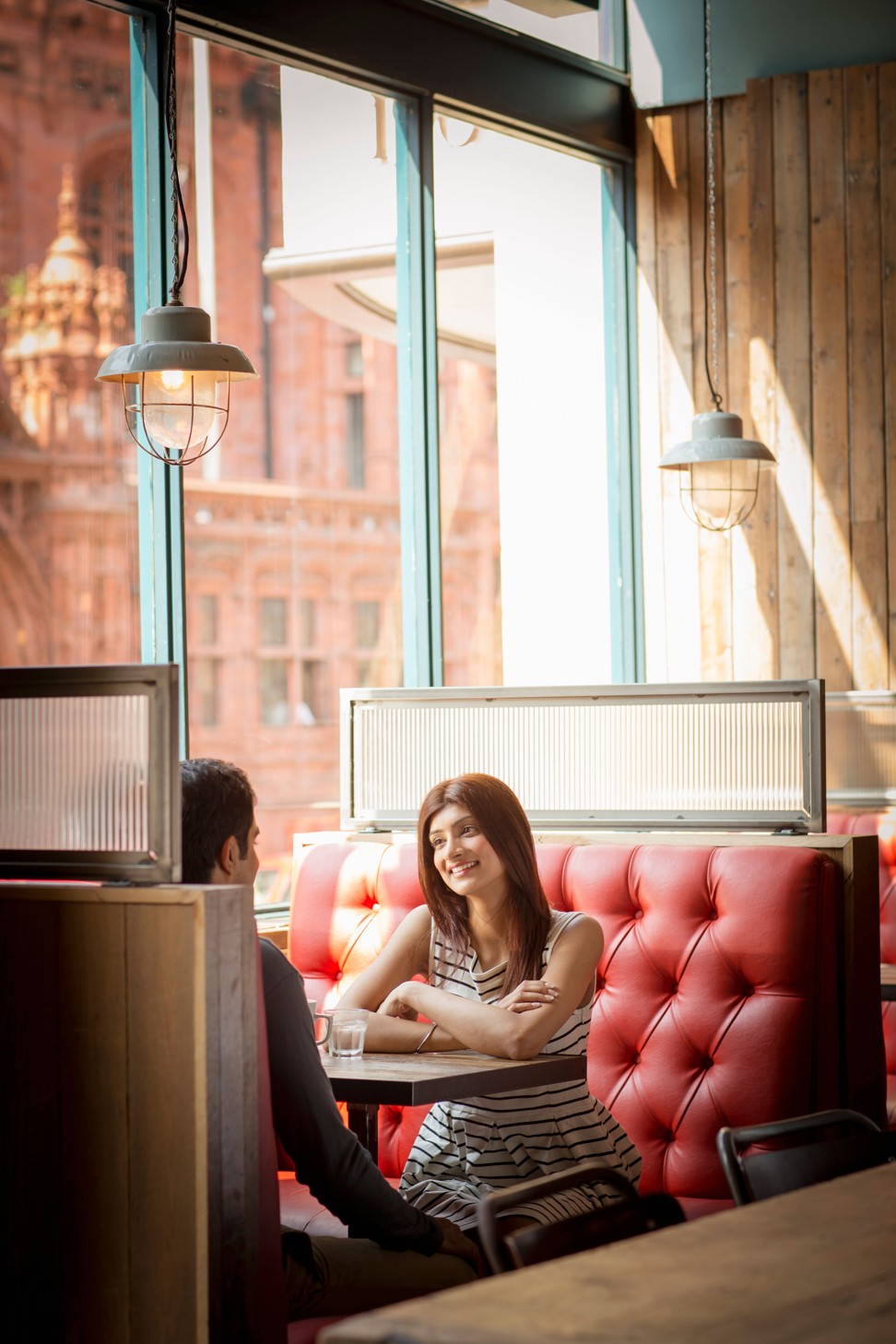
Dating in the smartphone age: a Chinese-American in Hong Kong discovers, and ditches, dating apps and - shock! - goes Dutch
Newly single in her 40s, Amy Wu quickly discovers the dating game has changed, with dates expecting her to split the bill and app users seemingly all after the same thing
After being single for almost one year, I’ve finally started dating again. It’s liberating, but scary. The possibilities have expanded with the rapid changes in technology, which cross time zones and borders, offering a number of ways to meet people.
When I last dated, in 2010, flip phones were all the rage, you spent more time crafting your text messages, and e-mails were lengthier and more thoughtful.
Facebook and Google existed, but in an era without smartphones, I was able to maintain a comfortable distance from constant news and status updates. The communications landscape was simpler.
Popularity of dating apps in Hong Kong shows technology and love make a good match
There was a common thread to dates I went on in New York and Hong Kong. My date called, we’d make an actual dinner date, we’d both show up, and usually enjoy a good meal and conversation. There seemed to be a formality to it, almost like attending Sunday Mass.
In Hong Kong I found the men, especially Chinese, to be more traditional – asking what kind of food I preferred, opening doors, and almost always picking up the bill for dinner.
Over the years, I spoke about dating and relationships with many men in my life – my father, uncles, cousins, and colleagues, who shared their philosophies about the sexes.
“Men should take care of the big things, such as the house, the car, and trips, and women can find a way to pay for other things,” my father once told me. For a long time, I believed him. But things seem to have shifted dramatically.

As a first-generation Chinese-American, I was born and raised in the United States, before moving to live and work in Hong Kong, where, for a few years, I lived with my then 89-year-old grandmother.
She was forward-thinking when it came to romance. “No need to get married. Marriage is just a piece of paper,” she would say.
Is there a way to strike a balance in this rocky and unsettling world of 21st century dating?
Maybe that’s why I was all ears when a friend pointed to dating apps – Tinder, Coffee Meets Bagel, and Bumble – a free, fast, simple and user-friendly way to connect. My friend had found success using dating apps, and has now been in a relationship for six months.
I downloaded the apps, posted a headshot, and filled in the essentials. In my profile I said I was seeking a long-term relationship: no one-night stands.
Meet the least-fussy guy on Tinder: He’s swiped right on 200,000 women, and he still hasn’t got a girlfriend
Within minutes I received dozens of “likes” and several text messages, but then realised they could not be from mature adults. One read, “I think u r sooo hot. Wuz r u doing?”. In the coming days I received numerous “hi” and “hellos” only to be met with silence when I thanked them and asked for their name. One person who replied seemed nice enough, asking me how I was doing, and whether I’d like to go to dinner. When I turned up at the restaurant, the only person I saw looked like a college kid.
This was my 38-year-old date. I complimented him on how young he looked. “Well it’s all the weightlifting and eating right,” he said, as he wolfed down a plate of buffalo wings.
He flinched when I half-jokingly asked to see his driving licence. He said he’d forgotten it and asked why age was such a big deal. “Age doesn’t matter to me, but the truth does,” I replied. I never saw him again.
I soon realised that dating apps were just a pool full of guys who were looking to hook up. Once they realised I had certain dating criteria, they quickly disappeared. No good could come of men who were taking selfies in bathroom mirrors anyway, I thought.
“Well what do you expect to smell when you look in the sewer,” my sister said.
So I joined several MeetUp groups. MeetUp is an online social media portal that connects you to others with similar interests – foodies, film fanatics or even groups with creative names such as the “brainiacs”.

Things got more promising when I met a man with similar interests at the film lovers’ MeetUp. He’d asked me to join him for coffee, dinner and movies, and complimented me on how great I looked.
On the first couple of dates he paid, then he asked me to split the bill. At first I was stunned, and texted my girlfriends. “Is going Dutch now the norm on dates?” I asked. Many said it would have been nice if the guy at least paid on the first few dates, but it would also be nice if the woman asked if she could chip in. Most men were likely to turn down the offer and insist on paying.
Hong Kong singles ‘world’s most desperate’, suggests data from dating app
My six years of living and working in Hong Kong had seemingly solidified my expectation that a man should foot the bill if he asked you out. I didn’t go on many dates in Hong Kong, but when I did the man swiftly snatched the receipt.
My male cousins confirmed that it was the norm, even if most women these days can pay.
However, the expectation followed me back to the US, where I found that in Western culture I had quite a few girlfriends who split the bill or even paid for dates. My stepmother seemed to accept this paradigm shift.
“Times have changed. I mean, women are professionals, have careers and earn money too,” she said, pointing out that 50 per cent of her medical students, if not more, were women.
The romance saga continued with my new MeetUp friend, who reached out to me for movies and dinner, and showered me with compliments of “you look so pretty”. He had now become tight-fisted when it came to paying. As a result, our relationship came to an abrupt end when we went to lunch and the bill came to US$10 each, but they’d only accept cash. I didn’t have enough on me so he paid by credit card and said: “You can pay me back by PayPal.” Ten dollars; was he serious?
Seeking Cupid became more of a headache than a pleasure. My expectations of courtship and dating defined by culture, and to some extent, the pre-Facebook days, didn’t seem applicable any more. I was outdated, and confused by cultural and generational gaps.
Why US millennials are putting off marriage – for reasons that could easily apply to Hongkongers
The unwritten rules had also shifted when it came to what constitutes a date. A recent survey in the US found that 34 per cent of singles have had sex before even going out on a date, and 48 per cent of millennials are more inclined to have sex before a date compared to other generations.
My friend Helen – born and raised in Hong Kong – has lived in the US and Japan, and doesn’t think culture has influenced who she dates, but believes it has changed her expectations of what a date is.
I reached the epiphany that sometimes one needs to accept that the world is rapidly changing and relationships are not immune to that.
“I agree there are different expectations between Asian cultures and the American culture,” she said. “I do think American-cultured people tend to think for their individual benefit, whereas Asian-cultured people tend to think in terms of family and extended family as a whole unit.”
Is there a way to strike a balance in this rocky and unsettling world of 21st century dating?
“I think it is important for mixed-culture couples to be open on the difference in expectations based on their own culture, and make an effort to find common ground,” she said.
Victor – who lives in New York and has dated many Asian women – said the challenge comes down to expectations in a rapidly changing society. Victor, who is half Puerto Rican and half Jewish, said “most of these women had a dating preconception that the man on the date should pay”.
“For the American male it would make no difference if the women he was dating was Asian or not. It simply would be that he could not afford it [keep paying].”
I realised that sometimes one needs to accept that the world is rapidly changing and relationships are not immune to that.
Toss culture, generation and even technology aside, and embrace a brave new world, albeit with a grain of salt.

